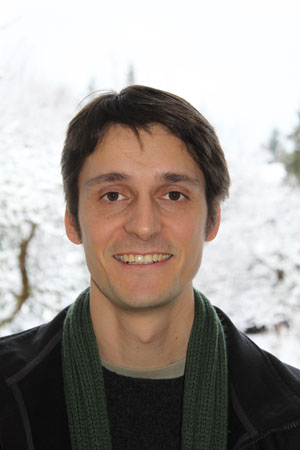Research Focus
Spatial orientation is our sense of movement through the world and orientation relative to the constant force of gravity. Many of our daily activities, including walking, driving, or riding a bike, depend critically on spatial orientation estimates that are continuously and effortlessly maintained by dedicated sensory and cognitive processes that most of us take for granted. The broad aim of research in the lab is to achieve a better understanding of these processes.
Methods
Human detection and discrimination of spatial orientation stimuli is measured using a virtual reality motion simulator consisting of a hexapod motion platform and visual and auditory displays. Natural statistical properties of visual and vestibular stimulation in real world environments are measured using a head-mounted device that records synchronized information about head motion, eye movements, and visual stimulation during everyday activities such as walking or riding a bike. Perceptual and motor measurements are evaluated in light of computational models and existing physioloigcal data (e.g. single-unit, fMRI, EEG). For more details please visit the research and publications page.
Research Applications
- Vertigo and balance disorders: diagnosis and rehabilitation
- Virtual reality: evaluation and development
- Spatial disorientaiton in aviation and space flight: countermeasures
- Automomous agents: robotic spatial orientation systems
Funding

UNR Neuroscience COBRE Research Project

OIA Track-2 FEC and IIS CHS:Small

Nevada NASA Space Grant Consortium grant

Transfer project DT-1, BCCN Munich

Research Grant
Paul MacNeilage

Department of Psychology
University of Nevada, Reno
1664 N. Virginia Street
Reno, NV 89557
(775) 682 8312
pmacneilage[at]unr.edu
